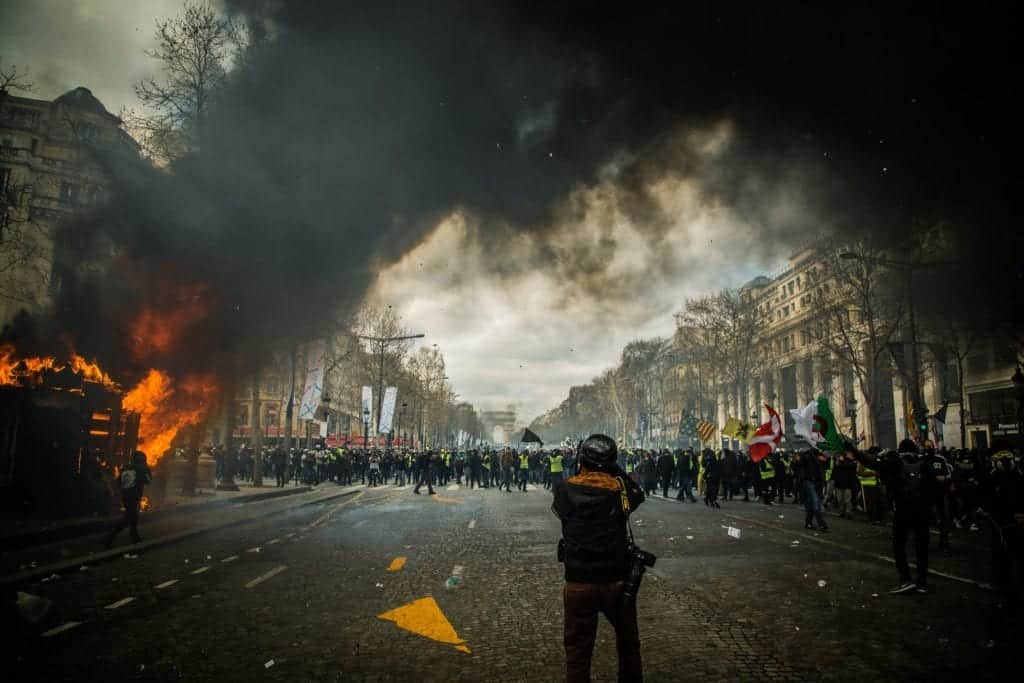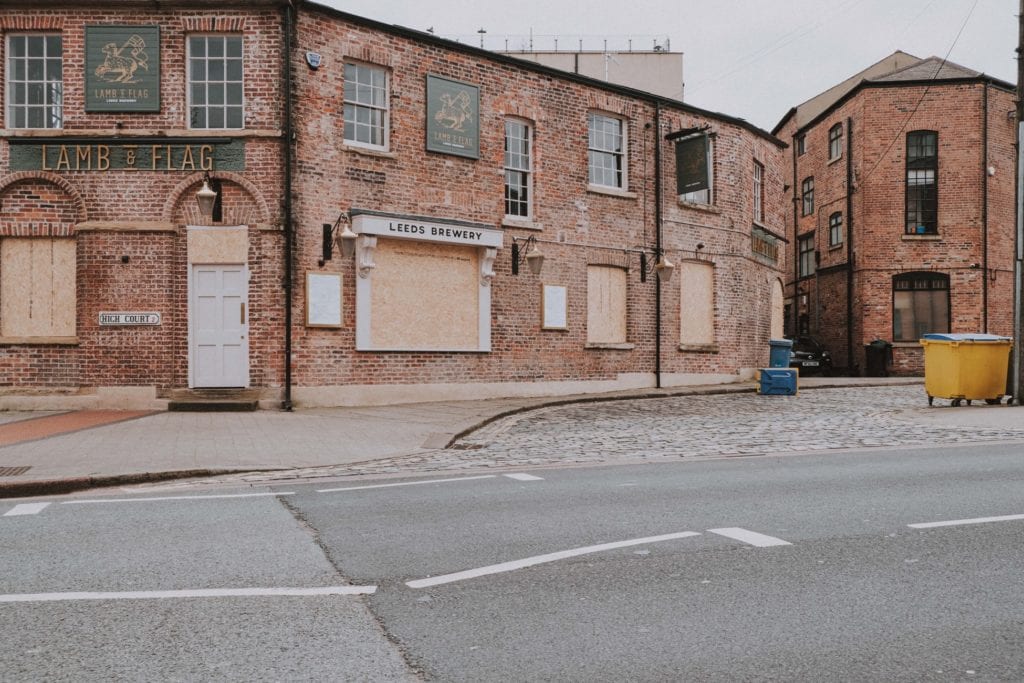
SMALL BUSINESS OWNERS ARE WORRIED
The impact of riots and looting on small business can be devastating. Many of us who are watching the news on television or reading the newspaper these days are seeing large retail stores being vandalized and ransacked. Windows are being broken, cash registers smashed or stolen, and people are seen running out of stores with everything from Rolls Royces to cheesecakes. Yes, cheesecakes. While these stores are important to our economy, they do not represent the core of American business. In our country, over 99% of the businesses in our country are small businesses, 80% of which have fewer than 20 employees. As such, most of us either own or work for a small business. Based on these statistics, we can reasonably conclude that most of the vandalized and/or looted businesses were small businesses. Even my firm’s building was vandalized by the recent riots.
Small businesses are built through ingenuity, perseverance, and hard work. Business owners want to protect what they have worked so hard to build. Below are a few things that business owners can do to protect their businesses during times of riots and civil unrest.
EVALUATE BUSINESS RISKS, ASSESS POTENTIAL VULNERABILITIES, AND REMOVE VALUABLES
Due to the advance of technology over the years, more small businesses are online. However, most small businesses are brick and mortar with a physical presence in the community. These business owners are on high alert, some more than others based on nature and value of goods sold.
Business owners should conduct a thorough inspection of their business’s surrounding area including the perimeter of the building, entrances and exits (and potential points of entry), and parking areas. All cash and sensitive documents should be removed from the premises and electronic files should be backed up or otherwise accessible should computer equipment become damaged, and, to the extent possible, all other valuables should be removed as well.
In addition to traditional security precautions, e.g., alarm systems and security cameras, some business owners are consulting with or hiring private security companies. In some instances, some businesses are taking even further measures. For example, in New York, Saks Fifth Avenue boarded up its windows with plywood, attached a chain-link fence, and further fortified the fence with a coil of razor wire along the top edge. Additionally, it hired security guards with specially trained dogs to protect the premises. On the other hand, some business owners are choosing to defend their businesses on their own through various self-defense measures. Since self-defense laws (of your person and of your property) vary from state to state, it might be a better idea to leave the security to trained professionals rather than trying to be John Wick.

INSURANCE
When we think of damage, we think of insurance. Business owners should regularly review their insurance coverage to assess the types and amounts of insurance coverage they determine is adequate for their business at any given time. According to the Insurance Information Institute, businesses damaged due to fire, riots, civil commotion, and vandalism are covered under a Business Owners Policy (BOP). Damage to glass, however, can be a little tricky. Loretta Worters, vice president, media relations for the Insurance Information Institute states that damage to glass, if it is not part of the building or structure, i.e., store fronts and plate glass on office fronts, may not be covered and may require a special glass endorsement (1)
As for loss of income, if your business is forced to close or limit hours of operation due to rioting, the resulting loss of income may be covered through business interruption insurance. However, business interruption insurance is typically only triggered if there is direct physical damage to the premises. Also, if civil authorities such as the police or fire department prohibit access to your business, lost income and extra expenses may be covered through a “civil authority provision” in a business policy.
COMMERCIAL LEASES
Most business owners rent rather than own their business property. If your business is vandalized due to riots and civil unrest, you should immediately contact your landlord. But will your landlord repair the property? It depends. Most California commercial leases contain a provision that sets forth the duties and responsibilities of both landlord and tenant with respect to the maintenance and repair of the leased premises. Usually, a lease will provide that absent a tenant’s negligence or willful acts or omissions, the landlord will either repair the structural portions of the building, e.g., the foundation, roof, exterior walls, subflooring, base building plumbing, and HVAC. If the repairs cannot be completed within a reasonable time, e.g., within 180 days, the lease may require termination. The tenant, however, has a duty to promptly notify the landlord of any such damage.
Is a business owner required to continue paying rent when their business has been vandalized? A well drafted lease addresses this as well and may provide that if a tenant is unable to use the premises as a result of fire or casualty damage (other than from negligence or willful misconduct of the tenant), then during the period that the premises is unusable, the tenant’s rent will be proportionately reduced based upon the extent to which the damage and subsequent repair prevents the tenant from conducting business. Having a carefully drafted lease that addresses issues like these can be the difference between heading back to work or heading to court.
CONTRACTS – FORCE MAJEURE CLAUSES
Business owners also need to review their contracts on a regular basis. What if vandalism and looting affects your (or your contracting party’s) ability to perform on a contract? Most contracts include force majeure clauses that excuse a nonperforming party when certain circumstances prevent a party from fulfilling its contractual obligation such as “acts of God,” flood, fire, governmental action, riots, labor shortages and disputes, shortages of supplies or materials, and other similar circumstances beyond the reasonable control of the party. However, the law is clear in that the threshold for nonperformance must be more than simply impractical, such as financial hardship or inconvenience. The courts have generally taken the position that force majeure clauses are to be interpreted narrowly, and thus, careful drafting of these provisions is critical. This means the event, upon which the nonperforming party is relying, must be listed or otherwise described in reasonable detail within the context of the force majeure provision. If a party is unable to satisfy its obligations under a contract and the contract contains a force majeure clause, which includes riots as a triggering event, then performance will most likely be temporarily excused.
CONCLUSION
Having an experienced attorney by your side, especially during times like these, can make a world of difference. We can help your business every step of the way to provide you with peace of mind so that you can focus on doing what you do best.
Mr. Malloy is a Senior Attorney at RJS LAW and has served as outside general counsel to businesses of all sizes, spanning many industries.
CONTACT
Brian M Malloy
PRACTICE
Corporate and Business Law
Real Estate

Leave a Reply